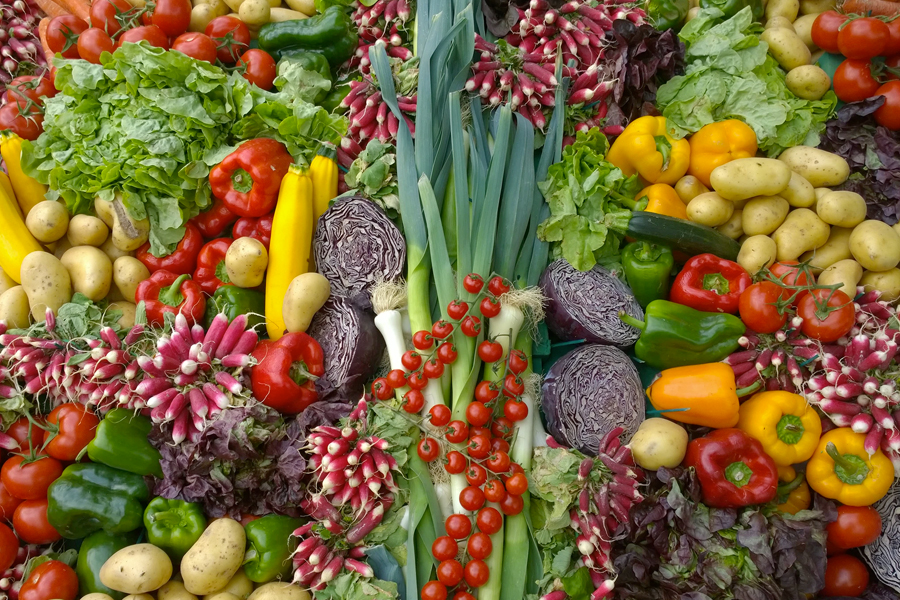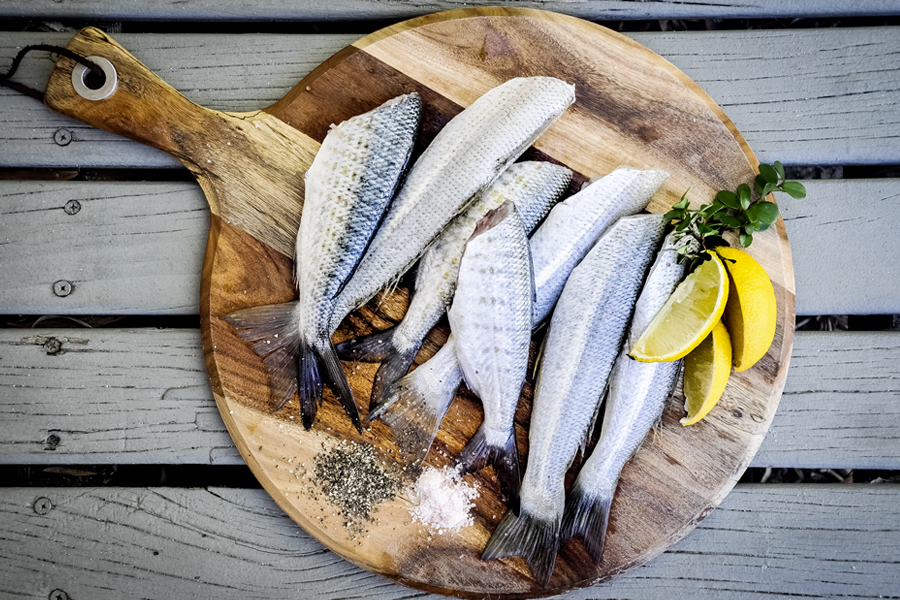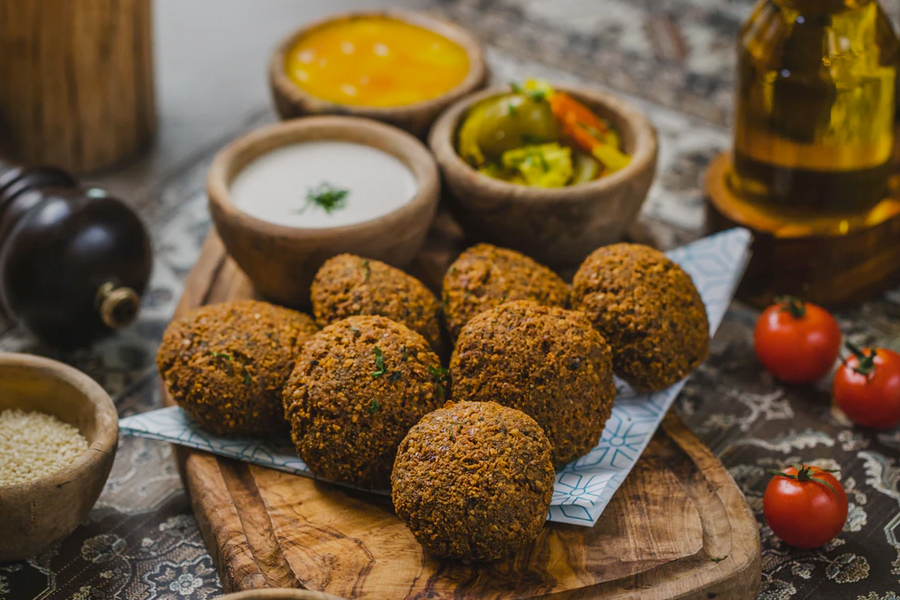
Published:
Readtime: 8 min
Every product is carefully selected by our editors and experts. If you buy from a link, we may earn a commission. Learn more. For more information on how we test products, click here.
Far more enduring than any current health trend, the Mediterranean diet is also far less exacting. That means you won’t have to stick to a narrowly confined set of principles, should you start consuming traditional Mediterranean food. In fact, one might even say that the Mediterranean diet plan isn’t a diet plan at all, but simply a way of life for numerous citizens of southern Europe, North Africa, and the Middle East.
Meanwhile, it’s not just the Mediterranean folks who practice what’s commonly described as a Mediterranean diet. If you look at some of the world’s “Blue Zones”—i.e. the towns and regions where people live the longest—you’ll notice a similar tier of dietary consistency. Specifically, most of these areas go big on natural plant foods, legumes, fruit, fish, and whole grains, while consuming low amounts of meat, dairy, sugar, and alcohol.
Being that Mediterranean food is both intrinsically delicious and tied to longer living, it’s only natural that you might want to reap a number of its blatant benefits. Allow us to be your guide. Here’s everything you need to know about the Mediterranean diet.
What is the Mediterranean Diet?
In the simplest sense of the concept, the Mediterranean diet consists of foods that many people eat in southern European, North African, and Middle Eastern countries such as Greece, Spain, southern France, Italy, Portugal, Morocco, Egypt, and Israel. Healthy staples include fresh fruit, organic vegetables, olive oil, seafood, legumes, whole grains, and nuts. Also featured in numerous Mediterranean diets are moderate amounts of dairy and poultry and low amounts of red meat or sugar.
According to some studies, practising a Mediterranean diet keeps your weight down, improves your microbiome, boosts brain activity, and lowers the risk for diseases such as diabetes, cancer, obesity, and heart disease. A certain way of life might also play a role in these outcomes, but it’s virtually impossible to disassociate one’s diet from his or her overall health. As the saying goes: you are what you eat.

Foods You Can Eat on the Mediterranean Diet
Any given list of Mediterranean food is going to be purposefully broad because like we said, there’s no exacting diet plan to speak of. Instead, you have an array of ingredients along with general serving suggestions.
Frankly, one might take refuge in the fact that the Mediterranean diet doesn’t micro-manage your every bite, or force you to commit to one specific food category. After all, the most demanding diet plans are usually the ones that don’t keep.
Nevertheless, it’s helpful to have a set of guidelines so that one might practice the Mediterranean diet without veering off course. Let’s kick things off with the following serving suggestions, as per a recent study:
- Vegetables: 3 to 9 servings a day
- Fresh fruit: Up to 2 servings a day
- Whole grains: 1 to 13 servings a day
- Olive Oil: Up to 8 servings a day
- Fibre: 33 grams a day
- Chocolate: A few servings per week
- Poultry: A few servings per week
- Eggs: A few servings per week
- Red meat: Less than 2 servings per week
- Red wine: 1 or 2 glasses a day at most
Ultimately, unsaturated (i.e. plant-based) fat makes up about 37% of the overall calories in an average Mediterranean diet. And while you might associate hearty plates of pasta or huge pizzas with countries like Italy, true Mediterranean diets incorporate only small portions of these foods.

Along similar lines, seafood, poultry, red meat, dairy, and red wine aren’t outright excluded, but they should be consumed in low to moderate amounts. When red meat is consumed, it should be pasture-raised and organic.
Moving on from serving suggestions, here are specific examples of common Mediterranean foods:
- Vegetables: Tomatoes, eggplant peppers, zucchini, cucumber, onions, leafy green vegetables, and more
- Fruits: Cherries, figs, apples, apricots, peaches, avocadoes, oranges, grapefruits, lemons, and more
- Legumes: Cannellini beans, chickpeas, fava beans, green beans, kidney beans, lentils, split peas, tahini sauce, and more
- Nuts and seeds: Almonds, cashews, chestnuts, hazelnuts, pine nuts, pistachios, pumpkin seeds, sesame seeds, sunflower seeds, and walnuts
- Dairy products: Cheese and yogurt
- Whole grains: Wheat bread, rice, and whole-grain cereals
- Potatoes: Red skin potatoes and sweet potatoes
- Fish: Mackerel, herring, shellfish, oysters, sardines, albacore tuna, salmon, trout, and more
- Poultry: Chicken and turkey
- Eggs: Chicken, quail, and duck eggs
- Drinks: Moderate amounts of red wine
If you’re looking for specific recipes, you should perform additional research. One thing we can say is that herbs play a vital role in the traditional Mediterranean diet. As you’ll hopefully discover, proper seasoning and a splash of lemon can enhance almost any savoury dish.
Food You Can’t Eat on the Mediterranean Diet
Should you adopt the Mediterranean lifestyle—which would be a wise move—there are certain foods you should be willing to eradicate from your diet altogether. Predictably, these are the types of foods that are most commonly associated with things like obesity and heart disease. Given how delicious a typical Mediterranean diet plan can be, we don’t think you’ll miss them. Plus, you can still eat chocolate.
Here’s a list of foods not to eat when practising a Mediterranean diet:
- Refined or added sugar: Soda, donuts, candy, ice cream, table sugar, cake, and more
- Processed grains: White bread, pasta or pizza dough made with refined flour, and more
- Trans fats: Margarine, fast food, and more
- Refined oils: Safflower oil, sunflower oil, peanut oil, soybean oil, canola oil, cottonseed oil, and more
- Processed meat: Deli meat, hot dogs, pepperoni, and more
- Factory-made foods: Anything packed with chemicals or preservatives such as low-fat salad dressings, artificial sweeteners, processed foods, and so on
Benefits of the Mediterranean Diet
We won’t inundate you with nutritional information, but just know that by adopting a Mediterranean diet, you’ll uncover a boatload of benefits. That’s because traditional Mediterranean food provides an all-natural injection of the good stuff. By that, we mean it delivers the following:
- Healthy fats: Consuming monounsaturated fat in lieu of saturated fat will help you ward off heart disease, obesity, high cholesterol, and (reportedly) neurodegenerative illnesses like Alzheimer’s disease
- Fibre: You already know that fibre aids with healthy digestion, just like you know you should be eating more of it in the form of whole grains, legumes, fruits, and veggies
- Vitamins and minerals: Practice a proper Mediterranean diet—which incorporates moderate amounts of lean meat—and you’ll leave no vitamin or mineral behind
- Antioxidants: Dietary antioxidants help rid the body of harmful free radicals, which can lead to cancer and other diseases

Mediterranean Diet Plan
Okay, okay, so we said there’s really no such thing as a true Mediterranean diet plan. That’s because Mediterranean food is a general category and not a strict fitness regimen. Nevertheless, there’s no harm in assembling a theoretical meal plan, which can help you kick off your new lifestyle.
Before we begin, it’s worth noting that everyone from keto practitioners to vegans and vegetarians can make seamless use of the Mediterranean diet. Also, a number of Mediterraneans skip breakfast and you can too. Naturally, you should adjust the following diet plan according to your specific preferences.
Monday
- Breakfast: Greek yoghurt with fruit and oats
- Lunch: Turkey sandwich on whole grain bread with a side salad
- Dinner: Grilled salmon stuffed with spinach and feta
- Dessert: A piece of chocolate
Tuesday
- Breakfast: Oatmeal with walnuts and raisins
- Lunch: Pan-fried falafel with veggies and tzatziki in a whole grain pita
- Dinner: Tuna salad with olive oil dressing and a side of sweet potato
- Dessert: A piece of fruit
Wednesday
- Breakfast: Mediterranean quiche with veggies
- Lunch: Quinoa and chickpea salad
- Dinner: Mediterranean lasagne
- Dessert: A piece of chocolate
Thursday
- Breakfast: Oatmeal with walnuts and raisins
- Lunch: Whole-grain cheese, veggie, and avocado sandwich with a side of sweet potatoes
- Dinner: Baked cod with veggies and red skin potatoes
- Dessert: A piece of fruit
Friday
- Breakfast: Omelette with veggies
- Lunch: Mediterranean pasta salad
- Dinner: Grilled lamb with a side salad and baked potato
- Dessert: A piece of chocolate
Saturday
- Breakfast: Greek yoghurt with fruit and oats
- Lunch: Greek salad with chickpeas
- Dinner: Mediterranean pizza on whole wheat dough
- Dessert: A piece of fruit
Sunday
- Breakfast: Eggs with whole wheat toast and a side of avocado
- Lunch: Leftover pizza
- Dinner: Grilled chicken with vegetables and a potato
- Dessert: A piece of chocolate
Good Mediterranean Diet Snacks
Healthy snacks are a fundamental component of the typical Mediterranean diet. In between meals, you can munch on the following foods (to name a few):
- nuts
- seeds
- whole fruits
- dried fruits
- yoghurt
- hummus with veggies
- avocado on whole-grain toast
General FAQ
A proper Mediterranean diet typically incorporates the following foods: veggies, fruits, nuts, seeds, legumes, potatoes, whole grains, breads, herbs, spices, olive oil, and seafood. It also provides for moderate amounts of poultry, red wine, and chocolate, along with low amounts of red meat and dairy.
Some Mediterraneans skip breakfast altogether. Others eat low-calorie breakfasts like yoghurt with fruit or oatmeal with nuts. Yet even others eat omelettes or quiches with veggies in moderate amounts.
When practising a Mediterranean diet, you should avoid processed foods, refined sugars, and large amounts of dairy, meat, or alcohol.
You’ll also like:
Joe Rogan’s Diet & Workout Plan





























Comments
We love hearing from you. or to leave a comment.